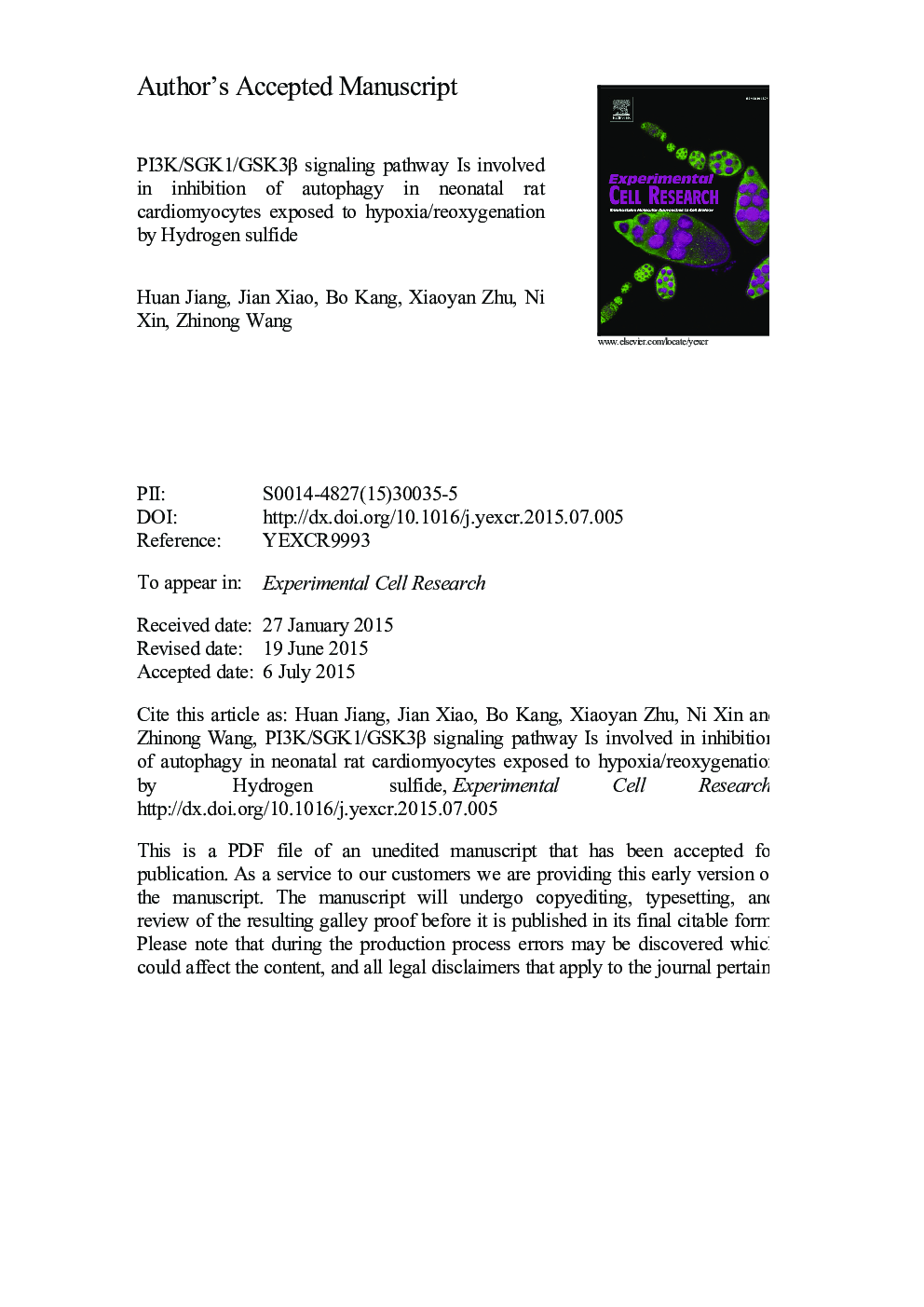| Article ID | Journal | Published Year | Pages | File Type |
|---|---|---|---|---|
| 10903704 | Experimental Cell Research | 2016 | 31 Pages |
Abstract
Excessive autophagy aggravates myocardial ischemia/reperfusion (IR) injury. Hydrogen sulfide (H2S) has been shown to possess a strong cardioprotective effect due to its anti-necrosis, anti-apoptosis, anti-oxidant and anti-inflammatory properties. Our previous study showed that H2S could also protect the myocardium against IR injury through its anti-autophagy effect in vivo, but the underlying mechanism remains unclear. The aim of the present study was to determine whether PI3K/SGK1/GSK3β signaling pathway was involved in the anti-autophagy effect of H2S against myocardial hypoxia/reoxygenation (HR) injury in vitro. Autophagy was significantly increased in cardiomyocytes subjected to HR, but it was down-regulated by H2S (NaHS donor). Blocking PI3K by LY294002 (a PI3K inhibitor) or knocking down SGK1 by SGK1 siRNA augmented autophagy and attenuated the anti-autophagy effect of H2S. However, blocking GSK3β by tws119 (a GSK3β inhibitor) produced an opposite effect. In addition, while treatment of neonatal rat cardiomyocytes with HR reduced cell viability and augmented cell injury, H2S significantly reversed it. Blocking PI3K or knocking down SGK1 aggravated HR injury and weakened the protective effect of H2S, while blocking GSK3β produced an opposite effect. In conclusion, H2S can inhibit autophagy in neonatal rat cardiomyocytes exposed to H/R and exert a cardioprotective effect at least partly by regulating PI3K/SGK1/GSK3β signaling pathway.
Related Topics
Life Sciences
Biochemistry, Genetics and Molecular Biology
Cancer Research
Authors
Huan Jiang, Jian Xiao, Bo Kang, Xiaoyan Zhu, Xin Ni, Zhinong Wang,
